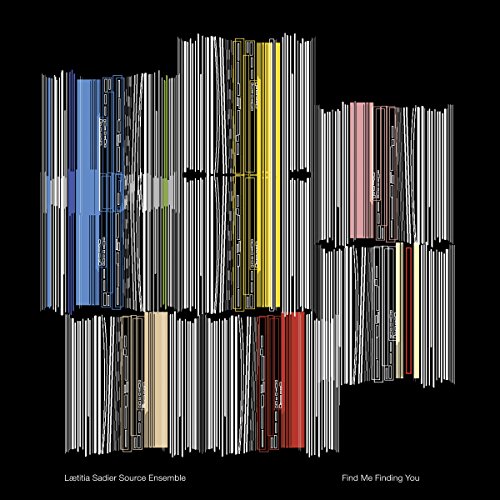
Laetitia Sadier Source Ensemble
Find Me Finding You
Release Date: Mar 24, 2017
Genre(s): Pop/Rock, Alternative/Indie Rock, Indie Electronic, Post-Rock, Experimental Rock
Record label: Drag City
Music Critic Score
How the Music Critic Score works
Buy Find Me Finding You from Amazon
Album Review: Find Me Finding You by Laetitia Sadier Source Ensemble
Great, Based on 3 Critics
Based on rating 8/10
Laetitia Sadier has spent much of her career decrying capitalism, but on the Laetitia Sadier Source Ensemble's debut album, Find Me Finding You, she responds to the late-2010s resurgence of right-wing forces with idealism instead of polemics. As she explores how politics are interconnected on a global and personal level, she reaffirms that the foundation of her beliefs is love. Not a sentimental, possessive love, but an "Undying Love for Humanity," as she describes it on the album's thrumming opening track.
Based on rating 4/5
Ostensibly inspired by "a mind's-eye envisaging of geometric forms and their possible permutations", erstwhile Stereolab chanteuse Laetitia Sadier has assembled a work of characteristic grace with her new fellow travellers, The Source Ensemble. And while Find Me Finding You won't necessarily offend dyed-in-the-woofer Stereolab aficionados - no apple need ever fall far from such an efflorescent tree - it still successfully stakes out a corner of its own, its abstract yet meticulously formal layers suggesting an aural Mondrian painting. Sadier's confounding gift is the ability to convey an inundation of deeper feeling with a level, impassive gaze, singing in her matter-of-fact, emotionally unencumbered manner.
Based on rating 6.8/10
In an interview surrounding her 2014 album Something Shines , former Stereolab singer Laetitia Sadier laughingly said that, since the days of her old group, she's been " cultivating the same piece of land, [but] maybe I grow different vegetables." The pithy comment stands as a fairly perfect summation of the 48-year-old's career. S ince arriving on the European indie scene back in 1991 with the first Stereolab EP, Super 45 , Sadier's vocal and lyrical approach has remained consistent: She applies her crystalline alto to lyrics that explore philosophy and political inequality through a Marxist lens. In Stereolab and as a solo artist, Sadier's musical tastes have tended to skew nostalgic, mixing influences of 1960s pop from the U.S.
'Find Me Finding You'
is available now

